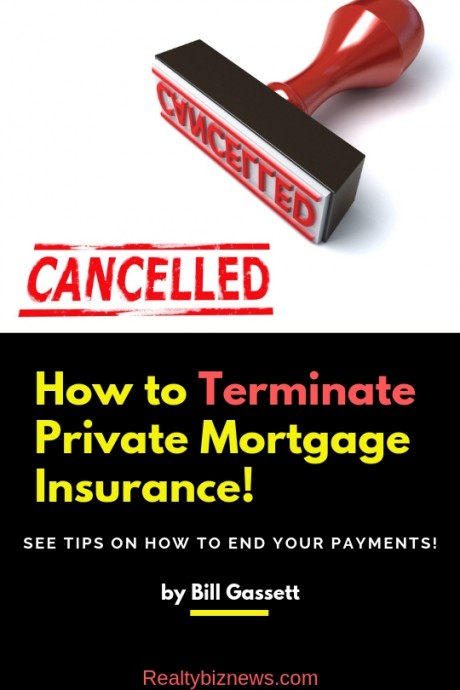
For those of you who have not bought a home before, it is essential to know about private mortgage insurance. This kind of protection is also known as lenders mortgage insurance. It is the insurance you will have to pay when you have a conventional loan and are putting less than a 20 percent down payment.
Nearly every lender requires private mortgage insurance when a borrower does not reach the twenty percent threshold.
A conventional loan has its terms and fixed rate just like other loan programs.
Conventional loans are not insured by government agencies, like the VA (the Department of Veteran's Affairs, FHA (the Federal Housing Administration), and the FmHA (Farmers Home Administration), which is essential to understand.
The loans mentioned above offered by the government do not have private mortgage insurance, AKA PMI.
As a home buyer, it is essential to decide if you should go the route of choosing conventional mortgage financing or work with one of the government loans that do not require PMI.
Picking one type of loan or the other often boils down to cost and qualifications. Even though you are not paying private mortgage insurance with a government program, the interest rate and mortgage terms might not be as favorable.
It is a smart exercise to compare.
So why do lenders require borrowers to purchase private mortgage anyways? The reasoning is simple. In the unfortunate event you end up in foreclosure, private mortgage insurance is required, so lenders don't lose their money.
It is the kind of insurance that benefits lenders and nobody else. From a buyer's perspective, you will want to stop paying private mortgage insurance as soon as you can. It is a useless fee for a homeowner.
It doesn't assist you to build equity or do anything remotely special for you. You're throwing money out the window unnecessarily. In the reference found at Maximum Real Estate Exposure, you will see detailed instructions on how to cancel your private mortgage insurance.
Private mortgage insurance becomes an attractive option if you're in a hurry to become a homeowner. Is your lease about to expire? Are you tired of paying your landlord's mortgage? Regardless of the reason, you're moving in a hurry, PMI looks excellent if you can't afford to put a 20 percent down payment towards your home.
Although private mortgage insurance is in place to cover the rear end of the lender, it gives you the opportunity to get the home you want and put less money down. This helps you achieve homeowner status much quicker than taking the time to save at least 20 percent of the home's total price for the down payment.
Sometimes buyers will ask if there is a way to avoid paying private mortgage insurance, to begin with. The answer is absolutely! You can avoid paying PMI by going with one of the government programs such as FHA, USDA or VA previously mentioned if you qualify.
You might also be able to find a local lender who holds their money in house and does not require the insurance. What you need to do is to make sure the costs of these other government programs do not exceed a conventional loan even though you will not be paying PMI.
It doesn't make sense to avoid private mortgage insurance if you end up paying more out of your pocket in the long run. Have the mortgage lender do a detailed overview of your costs before making a final decision.
While choosing a specific loan program is a critical exercise, you don't want to put the cart before the horse. One of the things I always recommended to my clients before buying a home is getting their financial house in order. Prior to choosing a lender to work with, you should be building your credit and preparing a fiscal budget that you'll be able to live with comfortably.
Additionally, buyers need to be mindful not to do anything that will drop their credit scores before purchasing a house. The best credit scores translate into the best mortgage rates and terms. Opening new credit cards and raising your credit balance are sure-fire ways a credit score can drop.
Your credit is far more critical than having a twenty percent down payment and avoiding PMI. Lots of home buyers purchase property without having twenty percent in their bank account.
While the benefits of quickly becoming a homeowner and numerous, there can be downsides.
Even if dealing with PMI is the only way you can get approved for a mortgage, it may be smart to reconsider. To help put things into perspective, the average private mortgage insurance premiums range between 0.5 to 1 percent of the total amount of money you borrowed.
With a ten percent down payment on a house that costs $150,000 gets you the mortgage you need for the home, with a remaining balance of $135,000. On average, your insurance expenditure will be an expense of approximately $675 to $1,350 or more. Breaking these fees down monthly, the cost will range from $56 to $113 per month or more.
These PMI expenses can add up quickly and make you feel like you have a hole in your wallet. Also, overspending for PMI can happen sooner than you realize. This makes homeowners wonder how do you know when to stop paying your PMI? The good news is the Homemakers Protection Act of 1998 helps you with terminating your private mortgage insurance policy.
Achieving 22 percent equity automatically grants cancellation, but reaching 20 percent equity allows you to cancel the policy yourself. You have to initiate the cancellation with your mortgage lender though.
Your PMI policy can't be terminated if there are liens against your property and your mortgage payments are not up to date.
Hopefully, you now have a strong grasp on how to end your private mortgage insurance payments.
Use these additional resources to make excellent decisions when buying or selling real estate. Informed consumers avoid making mistakes.